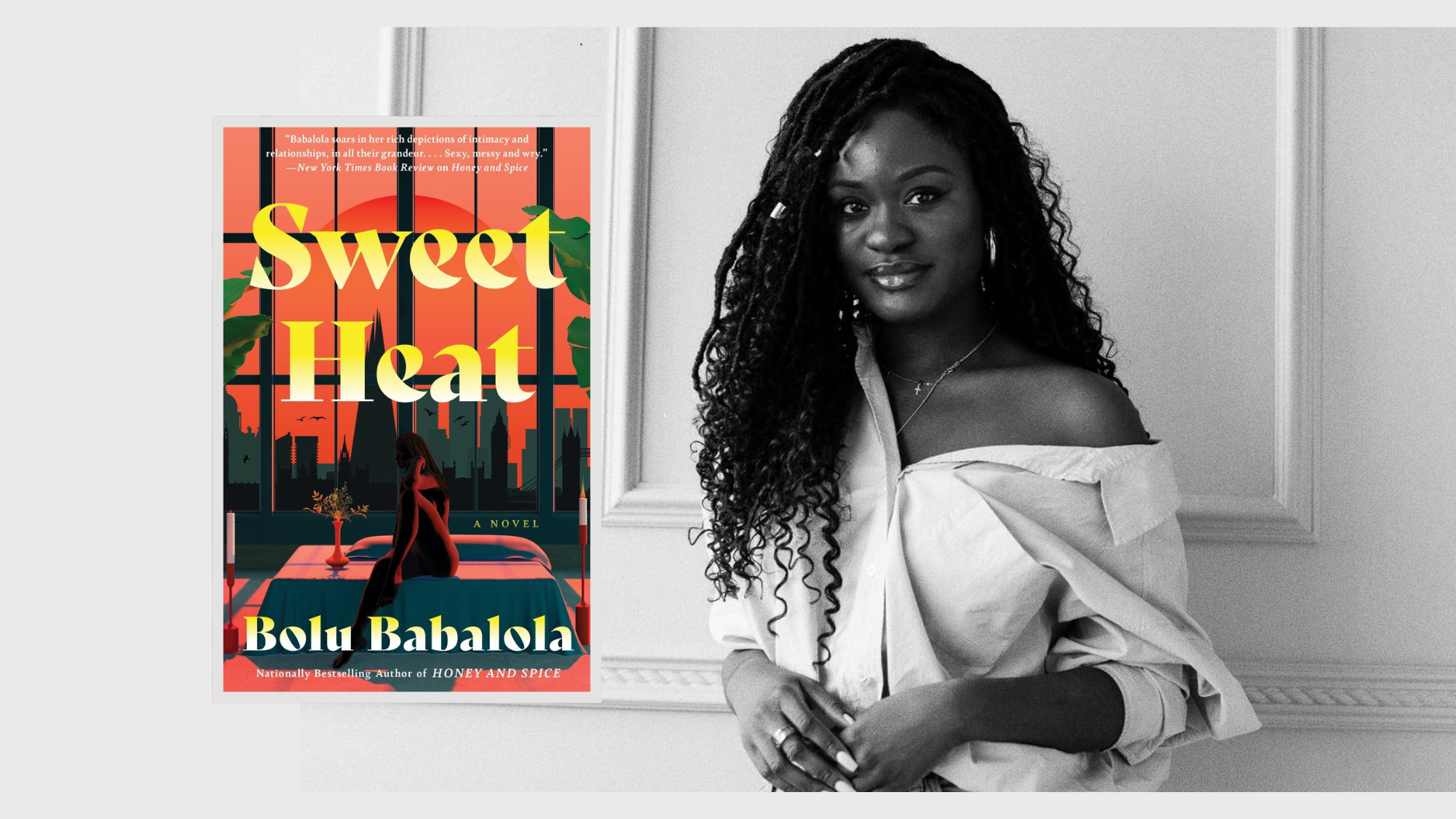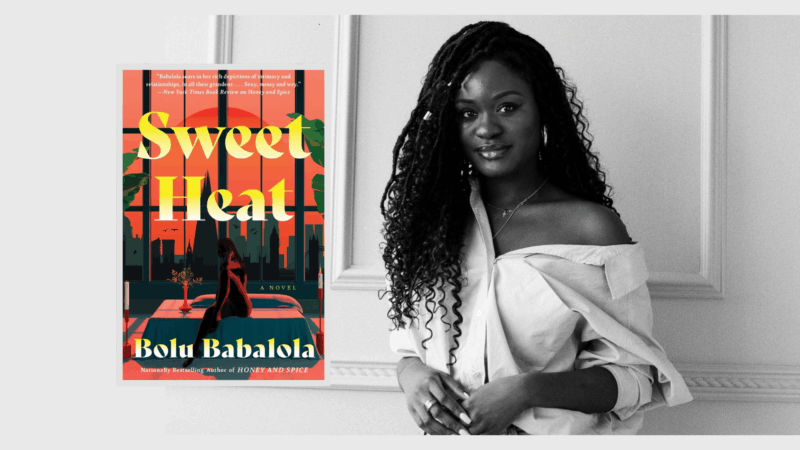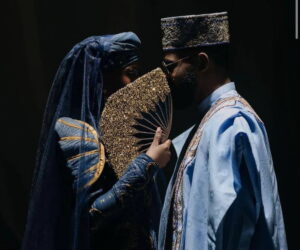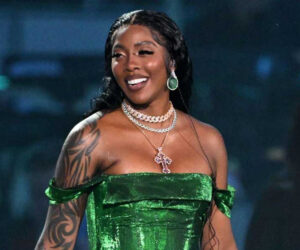
There’s something deeply satisfying about reading a romance novel that gets you, not the fantasy, not the fairytale, but the very human, sometimes chaotic way love unfolds in real life. Bolu Babalola’s Sweet Heat is exactly that kind of book.
If you read Honey & Spice, you already know Bolu writes with a rhythm that feels like your favourite R&B track, smooth, soulful, and a little bit spicy.
But Sweet Heat isn’t just another love story. It’s a portrait of a woman, Kiki Banjo, figuring out what love should feel like after heartbreak, ambition, and self-doubt. It’s messy, hilarious, and at times heartbreakingly familiar.
And I’ll say it right now: this is Bolu Babalola at her most mature, most introspective, and most emotionally intelligent. Spoiler beyond this point.
Bolu’s Sweet Spot: Storytelling That Feels Like Spoken Word
The novel opens with a line that sets the tone for everything that follows: a near-proposal gone wrong. Kiki, a confident, smart, and quick-witted media personality, sits across from her boyfriend Bakari, convinced he’s about to propose. What she doesn’t expect is the panic that floods her chest.
That moment when she blurts “I can’t marry you” before he even finishes his sentence is the beginning of a self-examination that’s raw and relatable. Bolu doesn’t just write romance; she writes truths. The kind that makes you pause and say, “Oh.”
The storytelling in Sweet Heat moves like memory, part stream of consciousness, part diary entry, and part romantic comedy. Bolu’s writing is textured and musical. You can hear her characters thinking, feeling, stumbling, and rationalising. It’s the way I talk to myself when no one’s watching.
Her prose swings from laugh-out-loud funny to unexpectedly tender in a single paragraph. She’ll make you laugh at Kiki’s witty internal commentary, and then, out of nowhere, she’ll hit you with a line so intimate it stings.
READ ALSO: Bina Idonije’s “Bridges Are For Burning” Nails the Messiness of Modern Love
Kiki Banjo: A Woman Trying to Relearn Her Own Heart
Kiki is a podcaster, cultural commentator, and Nigerian-British woman navigating her career, her friendships, and her romantic life, all while trying to protect the softest parts of herself.
In Sweet Heat, she’s recovering from both a professional setback and a heartbreak that left her wary of being vulnerable. Her podcast, The Heartbeat, once a space for healing and honest conversations about love and music, has just ended after a fallout with her producers, who wanted to “whiten” her brand. So when Bakari, her brilliant but emotionally distant tech-founder boyfriend, suggests she work for his company, it triggers something deeper: Who is she when she’s not creating from her own heart?
This is where Bolu shines; she writes women who are ambitious but afraid, confident but still craving softness. Kiki isn’t perfect. She overthinks, she misreads, she hides behind sarcasm. But she’s also self-aware enough to know she’s doing it. That’s what makes her so believable.
She’s every Black woman who’s ever been told to be strong but secretly wants to be held. Every creative who’s ever walked away from something “safe” because it didn’t feel right. Every lover who’s wondered if “enough” is really enough.
The Men in Her Life: Bakari vs. The One That Got Away
Bakari, her current boyfriend, represents stability. He’s successful, calm, predictable, a man whose love language is logic. He means well, but as the novel unfolds, you realise that he doesn’t really see Kiki. He respects her, but he doesn’t know how to hold space for her softness or her fire.
Then there’s the ghost of her past, Malakai. The ex who broke her heart and unintentionally reshaped her idea of love. When he reappears, the story heats up in more ways than one. What Bolu does so brilliantly here is not turn it into a cliché “choose one man” narrative.
Instead, she lets Kiki wrestle with what love should feel like, what safety costs, and whether passion always has to come with pain.
The tension between Kiki and Malakai is intoxicating. Their conversations spark like a live wire, full of longing, banter, and old wounds. You can almost feel the chemistry humming off the page. Bolu writes their dynamic like music, full of call and response, vulnerability and rhythm.
Without giving away too much, I’ll say this: the “heat” in Sweet Heat isn’t just about attraction. It’s about rediscovering warmth after going cold for too long. It’s about remembering that real love should stretch you, not shrink you.
READ ALSO: Nkereuwem Albert Brings Calabar’s Ghosts to Life in “The Bone River”
Modern Black Romance, Done Right
Bolu Babalola continues to carve out a space for what she calls “soft Black love.” She writes Black characters who are layered, messy, joyful, and tender, not defined by trauma but by their ability to feel deeply.
In Sweet Heat, love isn’t just romantic; it’s cultural, communal, and creative. It’s in Kiki’s friendships with Aminah and Shanti, in her family’s humour and expectations, in her music references, and even in her sense of style.
Reading Sweet Heat feels like scrolling through Black Twitter on a good day, witty, warm, and self-aware. The pop culture nods (from Insecure to R&B classics) aren’t just name-drops; they build a world where modern Black love exists in all its dimensions.
And unlike many romance novels, Bolu doesn’t romanticise struggle. She lets her characters unlearn emotional avoidance, confront their fears, and build love from truth, not pretence. That’s what makes it hit harder, because it feels possible.
Why Bolu’s Writing Works So Well
At its core, Sweet Heat is about emotional intelligence, how love demands self-awareness, communication, and courage.
Bolu writes with both wit and wisdom. She doesn’t spoon-feed lessons; she lets her characters live them. Her dialogue is crisp and believable, the kind of back-and-forth you can imagine having with your best friend after a bad date.
She also has a gift for pacing. Even when nothing “big” is happening, the emotional stakes are high. Every scene feels alive with subtext, a lingering look, a pause too long, a word unsaid.
Sweet Heat isn’t about perfect people falling in love. It’s about flawed people choosing love, again and again, with themselves, with others, and with the possibility of joy. By the end, you’re left with a warm ache, the kind that reminds you that love, when done right, doesn’t have to burn you. It can heal you.








